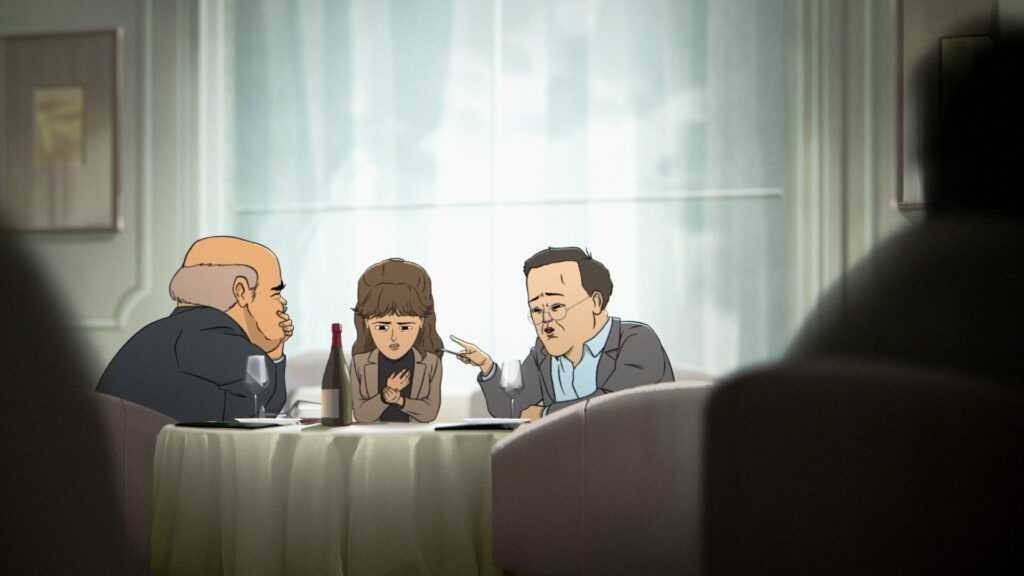Betrayal, Heartbreak, and a Miraculous Cure in Common Side Effects Season 1
Frances Applewhite kicks off Common Side Effects as Rick’s loyal, hardworking assistant – sharp, resourceful, and seemingly dependable. But nothing stays the same for long in good storytelling, does it? As season one unfolds, her loyalties shift, crumble, and realign in a dramatic way. Her journey moves from sincere partnership with Rick into desperate territory – driven wholly by love, loss, and circumstance. How she evolves reveals the depth behind her actions. So buckle up, let’s unravel Frances’s season one arc: unpacking betrayal, illness, tragic accidents, and the shifting sands of her allegiances.

From Dependable Assistant to Reluctant Betrayer
When Frances first bursts onto the scene, she’s the picture of cool professionalism. Rick relies heavily on her quick thinking and steady demeanor, making them a dynamic duo early in the series. Her job seems straightforward enough – she organizes, advises, and occasionally saves Rick from himself. But beneath Frances’s calm exterior simmers a mounting pressure: her mother Sonia’s worsening dementia.

As viewers quickly discover, Sonia’s illness isn’t just a minor subplot – it’s the emotional whirlpool steadily pulling Frances downward. Frances, ever determined and calculating, refuses to surrender. She searches relentlessly for solutions – perhaps even those of questionable morality – to spare her mother from dementia’s grasp.
Everything comes to a head when Frances travels alongside Rick and her boyfriend Nick to serene Geneva. Sure, at face value, these characters seem headed for a simple business trip. Yet beneath the idyllic scenery and peaceful Swiss streets brews a stressful storm. Frances can’t help but return, obsessively, to the mysterious fungus known as ‘Blue Angel’. It symbolizes hope, desperation, and the dangerous lengths she’s willing to go for someone she loves deeply.

Staring down the barrel of desperation, Frances’s priorities shift radically. Love for her mother doesn’t just push Frances – it catapults her toward choices she thought she’d never make. Decisions that involve risking trust, bending ethical boundaries, and finally outright betraying someone she respected deeply. There lies her pivotal turning point: Frances decides she must act, whatever the cost.
“Hildy”: The Turning Point
The pivotal moment in Frances’s journey occurs in the emotionally charged episode titled “Hildy.” In this standout installment, amid lush Swiss vistas and clever banter, Frances bravely tests the mysterious mushroom – the Blue Angel. And remarkably, she succeeds. Sonia’s dementia, previously devastating and unstoppable, retreats. Mom returns – lucid, clear-eyed, her previous vitality fully restored. For Frances, it’s a miracle, a triumph that validates every controversial choice.
But every good story serves up heartbreak alongside triumph. Frances’s happiness crashes suddenly – no warning, no mercy. Sonia’s death comes rapidly, tragically, in an unforeseen accident, shattering the fragile hope Frances clung to. Her mother’s unexpected passing turns Frances’s short-lived victory into crushing devastation. Despair replaces joy, and grief consumes Frances, dramatically transforming her outlook.
This twist shifts everything. At first, Frances betrays Rick reluctantly – yet now, after her loss, her perception changes drastically. Her prior reasoning fades rapidly into confusion and guilt. Losing Sonia after achieving the impossible clouds Frances’s once-clear vision. Doubts and regrets rise, altering her sense of self and loyalty, shaking her foundations deeply.
Negotiations & Conflict: Frances and Rick’s Clash
In the aftermath of tragedy, Frances faces another uphill battle – Rick himself. Her betrayal profoundly damaged their previously strong bond. Episodes that follow explore tense dialogues filled with emotional resonance and heavy consequences. One memorable negotiation has Frances and Rick butting heads angrily – arguing openly about the mushroom, its implications, and their broken relationship.

Quite directly, Frances challenges Rick’s worldview. She wrestles with him emotionally, logically, ethically – each confrontation dripping with tension. Because every discussion between them isn’t just about mushrooms or theories anymore; it’s deeply personal now. Frances’s mother is gone, and Rick’s ambition has been seriously jeopardized by her actions. These confrontations test Frances, pushing her toward new realizations about loyalty, accountability, friendship, and loss.
Their conflict never dissolves quickly nor neatly. Instead, it simmers awkwardly beneath their surface-level interactions, erupting periodically into fierce arguments and raw confrontations. This friction heightens character growth. Frances becomes more introspective, and Rick reassesses trust and vulnerability. Each confrontation reshapes the narrative, pushing their relationship toward new complexities.
Frances’s Transformation: A Complex Portrait
Who Frances is at season one’s finale is decidedly different from the steadfast assistant from episode one. Her story, rich with complexity, moves carefully between the realms of personal sacrifice and moral ambiguity. Originally bound tightly to Rick through friendship, professionalism, and trust – Frances breaks away dramatically. Driven initially by genuine desperation, then pushed further by loss – her journey includes deep lessons about the difficult terrain of loyalty.

Frances becomes neither outright villain nor hero. Instead, she settles somewhere painfully human. Her actions, guided mostly by personal devastation, are understandable if not forgivable. Her character invites contemplation rather than judgment, leaving viewers conflicted yet empathetic. After all, who wouldn’t consider drastic measures if it meant saving someone dearly loved? Frances’s character challenges viewers, forcing introspection about hard ethical boundaries and human fragility.
Key Highlights in Frances’s Arc
To clearly summarize Frances’s complicated evolution, consider these key developments:
- Assistant turned adversary: Starts as Rick’s right-hand confidante – ends in controversial betrayal.
- “Hildy” miracle: Risks everything experimenting with Blue Angel mushroom; temporary success curing Sonia’s dementia.
- Loss and guilt: Sonia’s tragic accidental death; Frances’s brief happiness instantly replaced by guilt and confusion.
- Conflict with Rick: Tense dialogues reveal emotions clearly – revealing nuanced human reactions and behavior.
- Moral complexity: No outright villain; evolves into messy, relatable human figure, shaped by grief and love.
Each milestone pulls Frances farther from her comfort zone. Her transformation deepens viewer empathy – her pain becomes relatable, her ethical struggles compellingly authentic.
Frances Applewhite, Redefined by Loss
In the end, Frances’s path through season one consistently raises profound questions. How far is too far to save a loved one? When do ethical lines blur completely beyond recognition? Common Side Effects doesn’t answer neatly. Instead, it stays brilliantly ambiguous, leaving Frances Applewhite’s decisions open to rich interpretation.

Frances embodies complexity in her layered journey. Loyalty, trustworthiness, sacrifice, and moral choices become intricately tangled through her experiences. Betrayal – once unimaginable – becomes understandable, even if troubling. Frances’s arc, expertly crafted through tragedy, betrayal, and negotiation, prompts audiences to question absolute moral boundaries.
Intensely human, flawed yet admirable – Frances Applewhite’s season one arc is love, loss, and shifting loyalties at their most intriguing. And as Common Side Effects pushes forward, we eagerly wonder how her powerful experiences shape future decisions. Because if Frances taught viewers anything, it’s that humanity rests within gray areas – complexities that make for truly captivating storytelling.




